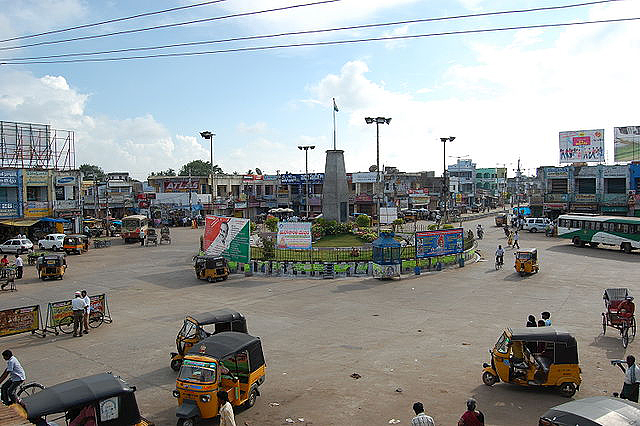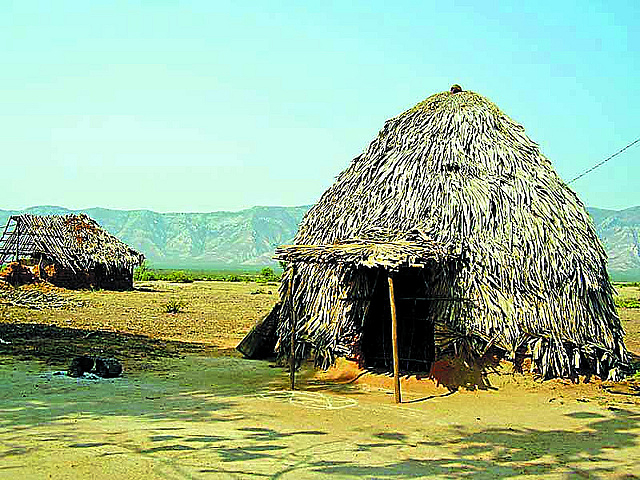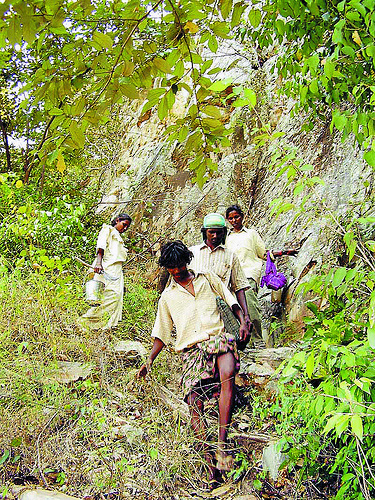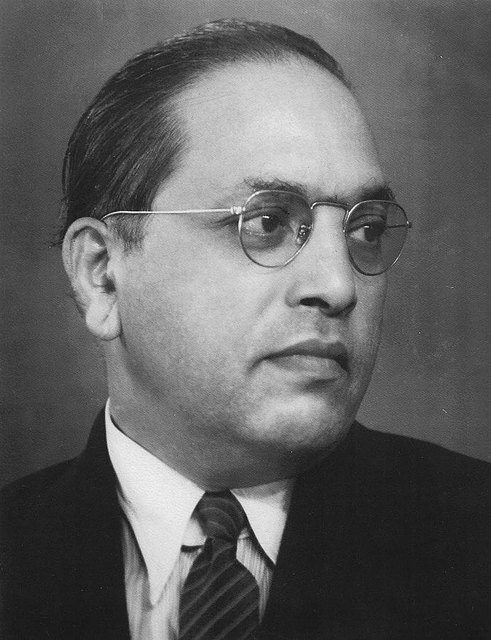A Yanadi community that contributes to the welfare of a small city, and another that was recently freed from slavery, were both the subjects of news stories last week. The focus of the first report was on the hard work of the people and the conclusion of the other was on the gratitude of the Yanadi for their freedom.

The Hindu reported on June 4 that Yanadi workers are employed in the small city of Machilipatnam, a port on the coast of Andhra Pradesh, to clean the accumulated silt out of the drainage system of the municipality. M. Jaswath Rao, the Municipality Commissioner for the city, told the paper that 70 workers, primarily Yanadis, were working in the heat of summer to complete the job by the middle of June. They are known for being able to do very demanding work in the scorching heat, according M. Baba Prasad, the Municipal Chairperson. Cleaning the drains is an essential task since they are prone to becoming water logged in the low-lying city.
The second report, about slavery in Andhra Pradesh, appeared last week in GovernanceNow, an Indian magazine and website about issues related to good government. Ben Phillips, the author, is the international director for policy, research, advocacy and campaigns for ActionAid, an international NGO that focuses “on the people that others forget,” as the organization writes on its website.

Mr. Phillips opened by describing his visit with some Yanadi living in Aravapalem village, located in the Nellore District of Andhra Pradesh. The small straw huts that they live in could superficially look desolate, he wrote, but the Yanadi describe them as “paradise.” The reason is that, before living there with some control over their own lives, they were forced to live as bonded laborers on a plantation under the supervision, literally, of a cruel master.
As they told their story to Mr. Phillips, “the plantation owner was a vicious man. When he got angry because we had not cut enough of the crop, he would tie us to a tree and beat us. It was hell we were living in.” The owner would hold the children hostage if their parents left the plantation until they returned. He selected a little girl to work in his house for him, and when she turned 12 he started raping her. When she ran away, she was caught and brought back. But one day, while visiting a nearby temple, a worker from an aid organization happened to notice the girl weeping and asked her what was wrong.
She told the whole story, so the aid person connected her with another local organization and with the police, who intervened, raided the plantation, and freed all the slaves. The organization helped them obtain the land they are now living on so they could build their own farm buildings and houses. “We feel so happy now that we are free. We will stay here forever.”

Phillips argued in his report that the Yanadi are exploited regularly by the rich and the powerful in Andhra Pradesh; they are one of the most marginalized societies in India. The story is similar to one published in February 2015 which described some enslaved Yanadi who were forced to walk into forests to gather branches for their owners to sell. That group also had to endure cruel conditions before they were discovered by some NGO workers and freed.
Mr. Phillips described his meeting with another group of Yanadi laborers who were also recently freed from slavery conditions. They were confined to an illegal fish farm where they were required to use their bare hands to work with dangerously toxic materials. The first group of farm laborers felt they were fortunate compared to the second group, the fish-farming Yanadi. The author had a hard time believing that former slaves could feel fortunate compared to others who had had even worse experiences.
Those people, the second group, were freed from their slavery when a Yanadi man who had become a professional worker for an NGO heard from a relative about the terrible conditions at the fish farm. He substituted a lungi for his normal business attire, appeared at the fish farm pretending to be a visiting relative, interviewed the people, and then brought the authorities. The owner managed to escape arrest, but at least those additional Yanadi were also set free.

Phillips pondered the bravery of the little girl who told her story in the temple, and of the NGO worker who wore a disguise to get into the fish farm. He said that he was drafting his story on April 13th this year, the day before the 125th anniversary of the birth of B.R. Ambedkar, the great Indian economist, jurist, humanitarian, and leader of the Dalits (untouchables). The two groups of formerly enslaved Yanadi were planning to join marches the next day celebrating the Ambedkar anniversary.
As the author was leaving the Yanadi community, he asked the people if he could do anything for them, and they at first replied that there was nothing. Then, they asked one favor: that he return someday. “Please come back and see us sir, see us when we have built our houses here,” they told him.
He closed by relating his conversation with a Yanadi family during which he asked the name of their daughter, a girl who was born on the plantation. They told him that her name is Bangaram. As they were about to explain the meaning of that word in the language of Andhra Pradesh, Telugu, Phillips interrupted them. “I know, it’s one of the few Telugu words I know, it means gold. She is gold,” he concluded.